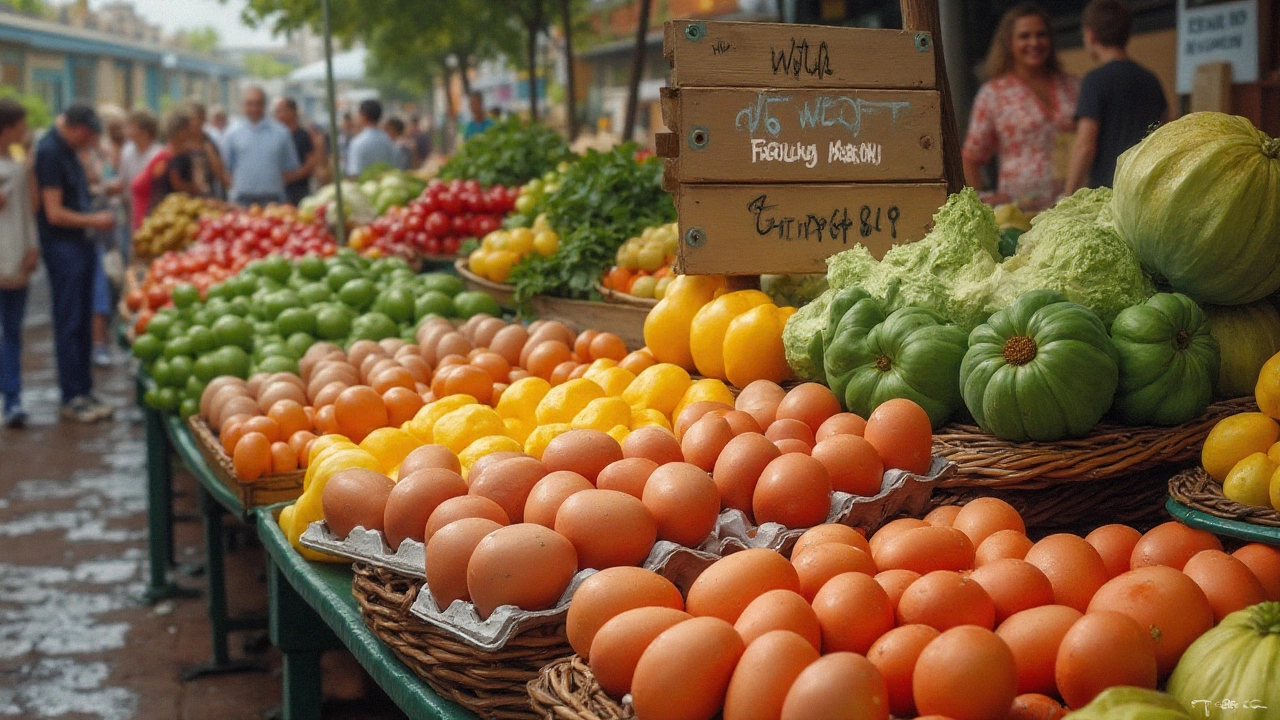Vegetarian Diets: Simple Tips, Benefits, and Seasonal Recipes
If you’re curious about going meat‑free, you’ve landed in the right spot. A vegetarian diet isn’t about giving up flavor – it’s about using fresh, seasonal produce to create satisfying meals that boost energy and support health. At The Culinary Crafts Academy we focus on craft, so you’ll learn practical ways to make plant‑based dishes that feel both delicious and doable.
Why Choose a Vegetarian Diet?
First off, a vegetarian diet can lower cholesterol, help manage weight, and reduce the risk of chronic diseases like heart disease and type 2 diabetes. It also tends to be gentler on the planet because plant foods need fewer resources than meat. Beyond the health and environmental perks, many people simply love the variety of textures and flavors that vegetables, legumes, nuts, and whole grains bring to the table.
One of the biggest myths is that you’ll miss protein. In reality, beans, lentils, tofu, and quinoa pack plenty of it. A typical serving of chickpeas (½ cup) gives about 7 grams of protein, and swapping a steak for a bean‑rich stew can easily meet daily needs when you combine different sources.
Seasonal Vegetarian Cooking Made Easy
Seasonality is the secret sauce for tasty vegetarian meals. In spring, think asparagus, peas, and fresh herbs – perfect for quick stir‑fries or light salads. Summer brings tomatoes, zucchini, and sweet corn; blend them into gazpacho or grill for smoky flavor. Autumn’s pumpkins, kale, and mushrooms shine in hearty soups, while winter’s root veg and citrus lift stews and roasts.
Planning around what’s in season also saves money. Visit your local farmers’ market, pick a handful of colorful produce, and build your meals around them. For example, a simple autumn bowl of roasted butternut squash, chickpeas, and kale tossed with olive oil and lemon makes a complete dinner in under 30 minutes.
When you’re new to vegetarian cooking, start with a few go‑to recipes. A lentil‑tomato sauce works on spaghetti, rice, or polenta. A tofu scramble with turmeric, spinach, and mushrooms can replace scrambled eggs at breakfast. Keep a pantry of staples – canned beans, quinoa, nuts, and spices – so you can throw together a meal on a busy night without a grocery trip.
Cooking classes at The Culinary Crafts Academy can boost confidence fast. Our hands‑on workshops teach knife skills, seasoning basics, and how to balance textures so every plate feels satisfying. You’ll also learn how to adapt classic dishes – like turning a cheese‑laden lasagna into a layered eggplant‑tofu bake that still delivers comfort.
Watch out for common pitfalls: relying too much on processed meat‑alternatives can add unnecessary sodium and additives. Instead, focus on whole foods and use herbs, citrus, and umami‑rich ingredients like nutritional yeast to build flavor. Also, remember to include a source of vitamin B12, either through fortified foods or a supplement, because plant foods don’t provide it naturally.
Ready to give it a try? Start small – replace one meal a week with a vegetarian option, then gradually increase. Track how you feel, note your favorite flavors, and keep experimenting. With seasonal produce, simple pantry staples, and a little guidance from The Culinary Crafts Academy, you’ll discover that a vegetarian diet can be both easy and exciting.

Do Vegetarians Include Eggs in Their Diet? A Culinary Exploration
Exploring whether eggs are a common component of vegetarian diets involves understanding different types of vegetarians and their dietary preferences. While some vegetarians choose to include eggs for their nutritional benefits, others may avoid them due to ethical or personal reasons. This article delves into the variety of vegetarian diets, examines health benefits and concerns about egg consumption, and provides culinary ideas for incorporating eggs into vegetarian meals.
More Detail